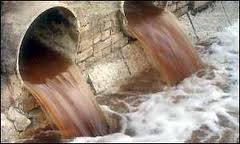How Important Are Minerals in Drinking Water?

Minerals or Contaminants: That is Often Your Choice
How important are minerals in drinking water? There’s an authentic debate among wellness professionals about the type of water that is healthiest to drink. Some people advocate for drinking water that has naturally occurring minerals. Others suggest drinking low temperature distilled water, as opposed to heat distillation. And some people think you have to add minerals to your water if you use a reverse osmosis system. The unique conditions affecting your water will determine the type of water filtration you need. Physical characteristics and contamination present in drinking water vary widely. This article will help you weigh the importance of minerals in your water in contrast to the information contained in your local water quality report.
The issue of minerals in water is complex. The scientific principle of osmosis is that water will move from an area of lower (solute) concentration to an area of higher (solute) concentration.1 In other words, water that is void of minerals is more hydrating because it will more readily cross the cell membranes in your body.2
RO Water Is Not Dead
You may have heard that distilled water and water produced by reverse osmosis are ‘dead,’ due to the intensity of the processing and the lack of minerals. However, measuring the energy of reverse osmosis water disputes this argument.3 The notion of ‘dead’ water is a misnomer that you should disregard. This is one of those silly internet rumors that has no basis in fact.
Water has been demonstrated to have a healthy condition, and it may be true that water’s physical condition, specifically the angle of the bonds between water molecules, is affected by transport in pipes and by filtration.4 Another objection to drinking either distilled or RO water is that both will be acidic. This is easily countered with the addition of a filter to raise pH. Numerous water treatment salespeople claim to ‘remineralize’ RO water but tests show a rise in pH only and no significant increase in mineral content from any of these filters.
Spring Water
Some wellness professionals advise drinking spring water. Spring water has minerals and is thought to be naturally vibrant – if it has not been conveyed in a pipe. Mineral content has been show to be beneficial by a number of independent studies funded by the World Health Organization. These studies indicate that people who drink water containing minerals suffer lower rates of heart disease than people who drink water lacking minerals.5
The WHO Study and Heart Disease
My own research contradicts this. I looked at the rate of heart disease in the U.S. cities with the lowest levels of minerals (aka tds). These include Seattle, Portland, San Francisco, and Denver. See research That research clearly illustrates that there is no correlation whatsoever between low tds water and heart disease in these U.S. cities. The faulty WHO studies make no account whatsoever for other factors including air pollution, lifestyle, and happiness.
Spring waters can vary widely in water quality and mineral content. Mineral content is measured as total dissolved solids (tds). EPA suggests an upper limit for tds of 500 ppm for drinking water. This is because water with a high mineral content is not hydrating. In my opinion tds of 300 is too high. River water often has a tds between 180 – 220 and in my opinion this is ideal.
What does this mean for you? It means that lower tds water is more hydrating, and that minerals in water may be beneficial, but only when present in relatively low amounts, however, far less than EPA’s limit of 500 ppm. I like to drink water with a tds between 30 and 250. The RO I sell produces a tds of 30.
What’s In Your Water?
Other considerations more important than minerals. For instance the presence of contaminants in your water may have serious health effects. When looking at your water report there is a section which identifies your specific water source. If your water source is a river, and there are cities upstream of your location, then your water will contain a dangerous mix of contaminants, many of which are unregulated.
Recent studies show that the water provided to 43 million Americans contains pharmaceuticals such as hormones, pain killers, and other drugs.6 Even trace amounts of these chemicals can have serious health effects.7 The only treatment proven effective at removal of these contaminants is reverse osmosis.8 Therefore a review of the water source and contaminants in your water quality report will lead you to determine which type of water filtration system will be effective in removing the contaminants present in your water. These factors will far outweigh the mythological benefit of mineral content.
However this is not to dismiss the importance of minerals. People in the United States are likely to be deficient in magnesium. To counter this I take a supplement every day. Calcium is also important but generally available in your diet. Sodium is something most people get too much of. The lesson I think is to have an idea of your mineral intake and then eat and supplement accordingly.
References:
1) Osmosis. (2011). Wikipedia. Retrieved January 26, 2011, from https://en.wikipedia.org/wiki/Osmosis
2) Hourmanesh, M. personal interview by James McMahon. (2011,January 17). Distilled Water. Retrieved from distilled water
3) Niesen, C. email between Niesen and James McMahon. (2011, January 23). Energy of RO Water. Retrieved from https://cleanairpurewater.com/ro-water-energy-measure/
4) McMahon, J. (2011, January 19). Vibrant Water. Retrieved from https://cleanairpurewater.com/vibrant-water/
5) Dissanayake, C. (2005, August 05). Of Stones And Health: Medical Geology In Sri Lanka. Science Magazine, 309(5736), Retrieved from https://www.siencemag.org/content/309/5736/883.1.full
This is one of 80 studies funded by WHO that show a correlation between minerals in water and heart disease. Still, I have read these and DO NOT see a strong correlation
6) Dell’Amore, C. (2010, February 26). Cocaine, Spices, Hormones Found In Drinking Water. National Geographic News, Retrieved from https://news.nationalgeographic.com/news/2009/11/091112-drinking-water-cocaine.html
7) How meds in water could impact human cells. (2008, March 10). MSNBC, Retrieved from https://www.msnbc.msn.com/id/23558785/## – link has expired
8) Reynolds, K. A. (2003, June). Pharmaceuticals In Drinking Water Supplies. Water Conditioning & Purification Magazine, 45(6), Retrieved from https://archive.wcponline.com/ArchiveNewsView.cfm?ID=2199 (link has moved)
What’s In Your Water?
Avoid the Mistake Most People Make I guarantee it! SIGN UP FOR MY FREE E Course:or To Learn More About Healthy Water for YOUR Family Purchase My Ultimate Guide To Selecting The Perfect Water Treatment System for just $14.95:
Or you may also wish to join my Water for Life mailing list. I send occasional emails about water quality issues, breaking news stories, healthy water, or product updates to individuals who join this list:
I hate spam too and will never share, sell, or give away your email address.
“I appreciate your knowledge and passion for what you do and believe in. You analyzed my problem and found a solution. You have gone above and beyond what most companies today provide in customer service. And, all with a smile and can do attitude. You’re the greatest!…”
Francine Hughes; Kayenta, UT

My name is Jim McMahon and I help people achieve healthy water in their homes.
Let me help you solve the water issues in your home.
Search
Contact Jim
- 866-691-4214
- 970-259-2171
- Mon - Fri, 9 - 5, Mountain Time
- Monday - Friday
- jim@cleanairpurewater.com
Follow us
Products
Well Water Systems Well water purification systems and well water tests to meet YOUR needs
Kitchen Defender the very best water filter to remove chloramine and fluoride
Urban Defender® The most effective whole house water filter
Air Purifier. The air purifier uses ions
to remove particles from indoor air
Free E-Course
Five Steps to Healthy Water
Are you looking for a home water purification system or a kitchen water filter and wondering how to find your way through all the hype?
Avoid the Mistake Most People Make
Learn how to buy the correct water purification system or water filter.
SIGN UP FOR MY FREE E Course:
Get The Newsletter
Sign up for updates and special offers!
Thank you!
You have successfully joined our subscriber list.
Sign Up For The Water For Life Email List
Signup for news and special offers!
Thank you!
You have successfully joined our subscriber list.
I Guarantee It! (I hate spam too and I DO NOT sell or rent your email)
Great Tasting Healthy
If you're ready to have great tasting, healthy water here's what to do:
Obtain a copy of your city's annual water quality report (also known as a Consumer Confidence Report)
Here's how to find it:
Finding Your
Water Quality Report
or call me and we'll find it together online and discuss how to achieve healthy water for your family.
866-691-4214
I provide the home water purification systems, water filter, water purifier, or well water filter system that will meet your needs.
or
if you’d like to resolve your water purification issues all on your own and still be sure you’re making the right choice, you can….
Purchase My
Ultimate Guide To Selecting The Perfect Water Treatment System for just $14.95
Product Reviews
The iron system is fine; our water is clean and the toilets aren’t stained. My bride is happy! As a matter of fact, the system seems to have had a softening effect on our water – a fringe benefit we hadn’t expected but are happy to have.